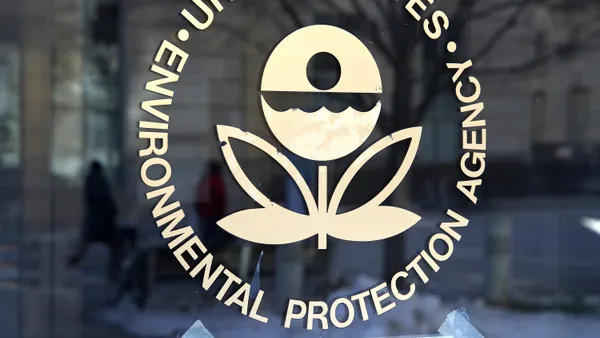Dive Brief:
- The number of companies worldwide with both validated near-term and net-zero science-based climate targets has more than tripled since the end of 2023, from 583 to 1,904, according to a report released Aug. 14 by the Science-Based Targets initiative (SBTi). The number of companies with near-term targets only almost doubled, from 3,622 to 6,378.
- A total of 10,949 companies worldwide now either have near-term targets or near-term and net-zero targets, or have committed to setting them, per the report, based on data current as of Q2 of 2025.
- By region, Asia saw the greatest increase in the number of companies setting climate targets, with China leading in relative growth, from 137 to 450 companies. Japan has the most companies with targets, with 1,731. Latin America saw the second-greatest increase in companies with climate targets, with Europe coming in third. The United States did not figure in the top 20 countries in terms of such increases.
Dive Insight:
The SBTi, which validates that organizational sustainability targets align with climate science, collected data from the end of 2023 until Q2 of 2025. The data included corporations, small and medium enterprises, and financial institutions. The latter could not set net-zero targets as of Q2 2025, as SBTi only released those standards in July.
The industrial sector, including manufacturers and distributors of capital goods, leads all sectors in terms of the total number of companies setting near-term or near-term and net-zero targets, with 2,518 companies, per the report. SBTi first set its corporate net-zero standard in 2021, but more than 50% of those targets were set in the 18-month period tracked in the report. The consumer discretionary sector, including automobiles and auto parts manufacturers, household durable goods, leisure products, and textiles and apparel producers, comes in second, with 1,284 companies.
While the total number of companies with active commitments has stayed level between 2023 and 2025, the number of companies with validated near-term and net-zero targets are increasing, demonstrating that companies are increasingly converting commitments into targets, according to the report.
When it comes to revenue and capital of large corporations, 25% of global revenue and 41% of market capital is linked to corporations with SBTs or commitments, per the report.
“Smart companies continue to see a strong business case to manage transition risk. Building climate action into commercial strategy helps maintain competitiveness now and in the future and allows companies to capitalize on opportunities in the low-carbon economy,” said SBTi CEO David Kennedy in a press release. “That forward-thinking approach has been playing out in the surge in science-based target setting over the past 18 months.”
SBTi is currently in the process of piloting an update to its Corporate Net-Zero Standard, after releasing a draft of the revised standard in March.












